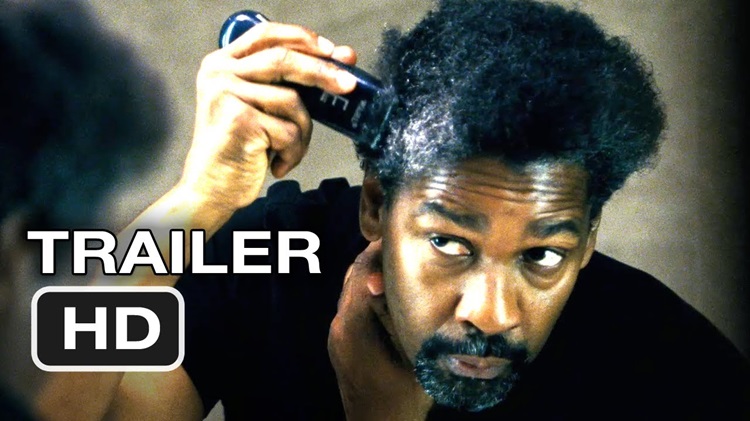It might be a stretch to think of Safe House as a coming of age film, as it’s structured and edited in the same way as an espionage action thriller. True enough, we have car chases, brutal hand-to-hand combat, gunfights, and a plot involving the acquisition and transportation of a secret file, which of course has dangerous international ramifications.
But when you narrow in on the lead characters and really focus on their dialogue and actions, certain themes become unavoidable, the transition from innocence to maturity most of all. We all have idealistic notions of the passions we pursue; CIA operative Matt Weston (Ryan Reynolds) is eager to leave the confines of guardian work in a South African safe house and be promoted to an active field agent, not only because he feels he’s qualified but also because it would be far more stimulating.
By the end of the film, he learns a life lesson that most people learn: Not everything is as glamorous as it might initially seem.
Here enters an ex-CIA agent named Tobin Frost (Denzel Washington), who has gone rogue and is suspected to have leaked sensitive material to a number of international criminal contacts. Although physically in the custody of U.S. officials, it would not be accurate to say that he was apprehended, as he mysteriously entered the U.S. embassy in Cape Town of his own free will.
The interrogation, which involves the controversial waterboarding technique, doesn’t go very far; the safe house is breached by a band of rebels looking to kill Frost. With no one left alive following a bloody shootout, Weston is forced to take custody of Frost and transport him to a new safe house. Weston will spend the rest of the film trying to prove his worth as a field agent, all while dealing with his superiors back in Washington, D.C. One is his mentor, David Barlow (Brendan Gleeson), who wants Weston to follow protocol. The other is Catherine Linklater (Vera Farmiga), who orders Weston go off the grid and await further instructions.
Adding interest to the story is the fact that Frost is a master of psychological manipulation. It’s next to impossible to read him. For most of the film, all we know for sure is that the wheels in his head are constantly turning.
The fact that Weston is a hotshot rookie presents Frost with absolutely no challenge, which of course makes his schemes much easier to carry out. But I’m making it sound like Frost is an evil mastermind, like a James Bond villain hell bent on world domination. The simple fact is, Frost knows too much. It would be inaccurate to call him a teacher, as he never sets out to educate young Weston or anyone else.
Having said that, the more the two of them come into contact, the more Weston learns about his place in the CIA. Each small revelation is like a knife whittling away at his idealism.
Admittedly, the film gives us nothing new in terms of plot or theme. And the action sequences, while technically competent, are both routine and expected. Some even fall victim to editing that’s a little too choppy to effectively convey the chaos that’s unfolding. There is, however, wonderful chemistry between Reynolds and Washington, who play off of each other like opponents in a battle of wits. They’re also quite good individually. Reynolds’ is at his best during a scene in which his character must admit to his girlfriend (Nora Arnezeder) that he is in fact a CIA agent and that, for her safety, she must leave the country. Up until then, his line of work required that he repeatedly lie to her, even about personal matters. The reason this scene works so well is because it emotionally exemplifies Frost’s influence over Weston.
As for Washington, I don’t think there was a single scene in which he failed to draw me in. Frost is a fascinating character – intense and deeply focused, an expert at what he does, a man of many secrets who’s motivated not by malice but by disillusionment. There never seems to be a moment when he doesn’t have the right tool for any given job. This would include a micro syringe that he uses to inject a tiny capsule into his side. His relationship with Weston is more complex and infinitely more compelling than that of hero/villain.
Both men are driven and talented, but only Frost is smart enough to take advantage of Weston’s eagerness. He will eventually regard Weston not with friendly admiration, but rather with detached appreciation, as if pleased that Weston is starting to understand where Frost is coming from.
The nature of Frost’s mission is not especially original, which is probably why the obligatory plot twist it ties into failed to impress me. It did, however, pave the way for an ending that was, in its own conventional way, highly satisfying. Whether or not the ending is happy is open for debate. It’s divided into professional and personal resolutions, both of which force us to consider a number of possibilities that are not all pleasant. As entertaining as I found the plot, it was the casting that made Safe House a worthwhile experience for me. Apart from Reynolds and Washington, I was also impressed by performances that aren’t given much screen time but add credibility to the film. One is by Nora Arnezeder, who plays Weston’s girlfriend as a woman who genuinely has no idea how to feel. The other is by Ruben Blades as Frost’s old associate, who lives in a Cape Town slum. Watch him as he and Frost share a glass of wine; even the subtlest lines can have a tremendous impact.


